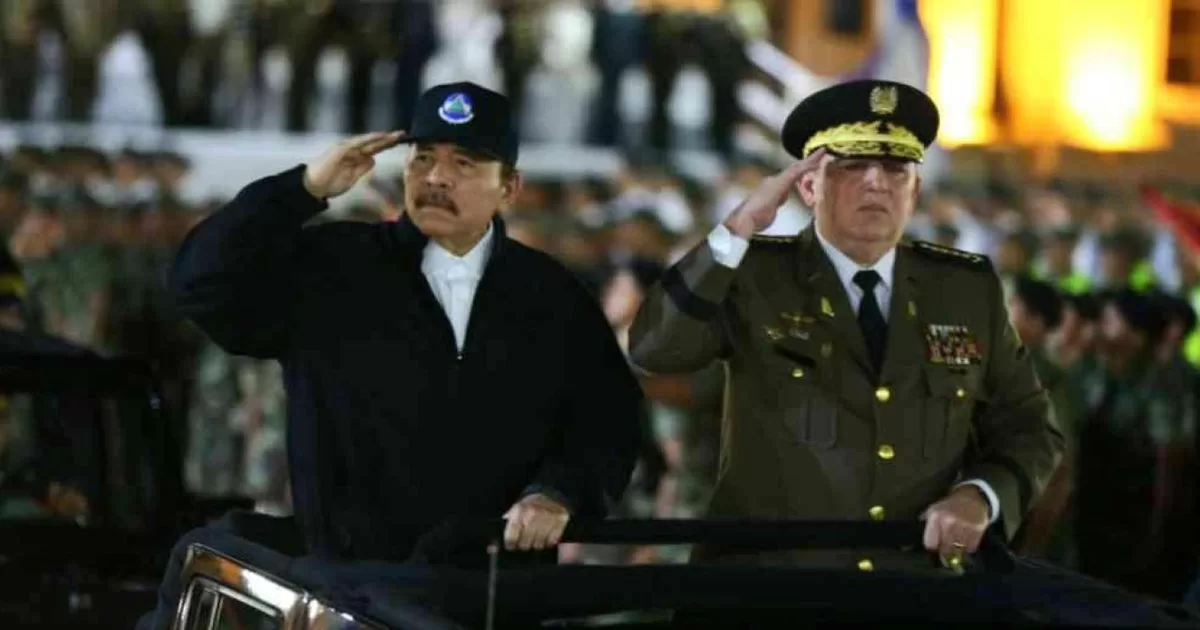GINEBRA.- The United Nations Organization (HIM) urged this Monday the regime of Nicaragua to “reverse course” and put an end to the “serious human rights violations” in the country, where a Catholic bishop remains imprisoned and opponents are persecuted, in a political environment where “impunity is the norm.”
This was stated by the UN Acting High Commissioner for Human Rights. Human rightsNada Al-Nashif, in a statement presented during a session held in Geneva to update the Nicaraguan situation.
“Every day the country deviates further from human rights, deepening the suffering of the population, causing the exodus of youth and undermining the future of democratic public institutions,” said Al-Nashif, who declared herself “disheartened” by the “continuous distancing” from the regime Daniel Ortega of the rule of law and other fundamental democratic principles.
“I call on Nicaragua to immediately reverse this course and introduce a fundamental change in the interest of its people,” he added.
Constant threat
The Acting High Commissioner pointed out that, five years after the social protests of 2018, the Sandinista regime continues to persecute political and indigenous leaders, members of the Catholic Church, human rights defenders and journalists. Many are in exile “with no possibility of return,” while those who remain in the country “are under constant threat or face a series of serious human rights violations.”
Among the 71 imprisoned opponents registered by his office, Al-Nashif mentioned the Catholic bishop Rolando Álvarez, who has been deprived of liberty for more than a year and who in February was sentenced to 26 years in prison. He indicated that Álvarez is “subject to a prolonged isolation regime” with poor food and medical care. “His prison conditions violate international standards,” he stressed.
He also cited the case of indigenous representatives Brooklyn Rivera and Nancy Henríquez, recently imprisoned and whose Yatama party was suspended and will not be able to compete in the regional elections on the Caribbean coast next March.
Dozens of exiles
Al-Nashif said he has documented 30 cases of Nicaraguans who have been prevented by the regime from entering their country since June as well as human rights violations of people banished and stripped of their nationality and property.
“It is important that there is international monitoring of human rights in Nicaragua and this must be a priority until we manage to cooperate better” with the country, he stressed.
During the session, the Attorney General of Nicaragua, Wendy Morales, intervened with a video statement in which she justified the regime’s position regarding dissent. In turn, representatives from Cuba, Russia, China, Venezuela and North Korea, among others, closed ranks in favor of “respect for the sovereignty of Nicaragua” and demanded that the UN “not politicize” the debates.
Ortega’s allies also called for lifting US and European Union (EU) sanctions on officials and official entities. “It is unacceptable that human rights mechanisms pressure Nicaragua with information from dubious sources,” alleged the Russian representative.
Condemnations of the regime
On the other hand, there were strong condemnations of the Sandinista regime from France, whose representative recalled that more than 3,000 non-governmental organizations have been closed in the last two years. “Nicaraguan civil society is disappearing under a brutal spiral of repression,” he said.
The representative of Ecuador urged the Managua regime to restore “the full exercise of civil and political rights” and promote a “national dialogue” that allows “the return of democracy.”
Similarly, Peru expressed its “concern about the sustained deterioration of human rights,” while Switzerland and New Zealand condemned recent mass dismissals in the Judiciary of people considered dissidents. “We continue to demand an end to the repression against civil society,” said the Swiss representative.
“Argentina does not accept that issues of sovereignty, development or economic sanctions are invoked to not guarantee the full validity of human rights,” said the representative of the newly installed government of President Javier Milei, while the Ukrainian delegate demanded that Ortega “freedom immediate and unconditional of all imprisoned opponents.”
Nicaragua is experiencing a serious crisis that began after the social revolt of 2018, when police and paramilitaries repressed civil protests with a death toll of 355, more than 2,000 injured and tens of thousands of displaced and exiled people, according to humanitarian organizations.
Source: With information from AP

